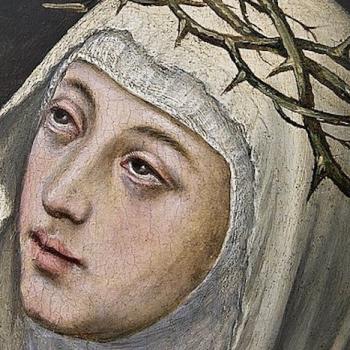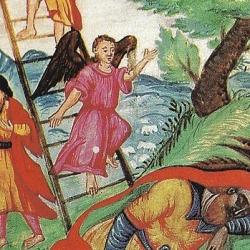
In my work as a theologian, I study the language and traditions of Christian holiness. That does not mean I think I am holy. There is far too much evidence to the contrary.
Instead, it means that one of the questions that drives my work is, “how can people be holy?” This question is never far from my mind when I study the Bible, ancient and contemporary theological writings, mystics, or philosophers.
I hope to one day write a thickish account of these studies. For the time being, I might organize my discoveries into three observations.
1. Being holy cannot mean becoming something other than the creatures we are.
This was the first thing I discovered, and I wrote about it in Diagonal Advance. There is a paradoxical pressure on the language of holiness. It’s there whether we use the classical language of theosis or the medieval language of perfection. It’s there in the Wesleyan language of sanctification as well as the mystical language of union with God.
The paradox is this. We are not holy, most of us would agree. So if we become holy, haven’t we become something we’re not? It seems that to flourish most fully as creatures is to stop being creatures. When we read the old term “perfection,” we assume it means an unlimited, mistake free being. And that no longer sounds like a human, does it?
Whatever else it means, becoming holy or perfect cannot be about dissolving or moving beyond our humanity. My first discovery about holiness is one I consider to be more or less a philosophical (thought- or wisdom-centered) one: if people can be holy, then that holiness cannot make us less human. It must somehow make us more.
2. Being holy cannot mean something entirely different for us than it does for God.
So on one side of the language of holiness, we feel the pressure to lose our humanity. On the other side is a pressure to dissolve the paradox by making human holiness something simply human. In this temptation, we say we are “only human,” and mean by it that we are human and nothing more. Human holiness then must be the unique property of humans.
But to say this we would have to reject the traditions, from the gospels and epistles to the mystics, that says our best end is to share in the life of God. One of my favorite passages from Augustine asks, “What kind of human is one who is a human and nothing more?” The “more” he’s after is a share in God’s own nature.
If we stop defining humans (or persons, or creatures) before we begin contemplating God, we are like people who experience a work of art without any curiosity about what the artist may have been trying to enact within it.
God’s holiness is visible in the way God shares God’s being with creation. Our holy lives, then, are the countless ways we receive that sharing. We find ways to practice Godlike attributes of goodness and affection and so become, as 2 Peter puts it, “participants of the divine nature.”
My second discovery about holiness is one I take to be a more or less theological (God-centered) one. For humans, to be holy is to be Godlike in a human way.
3. Attempting to seem holy is the enemy of actually becoming holy.
This is the hardest lesson to learn. Doctors of the church like Teresa of Avila and Catherine of Siena seem intent on not letting me forget it. People cannot become holy by attempting to deceive others and themselves into thinking that they’re holy. Self deception in particular is an acid that dissolves Christian holiness.
This follows from what I’ve already noticed. If I work hard at seeming holy, what I am actually saying is that to be holy is to be something different that the creature I am. I suspect I am really a fraud, but hope that if I act the part no one will notice. Only by humbly being the person I trust God to have made me to be can I become “human and more.” Christian holiness is a habit of trusting that God made something so good and beautiful when God made creatures—including the particular creature that I am—that God wants each one to be more, not less, itself.
Likewise, if I focus on what I imagine the people around me think a holy person looks like, I assume that I learn holiness from the opinions of others rather than from the holy God. I define a holy life for creatures before I get all the way to contemplating the holy life of the creator. Instead, holiness is about acknowledging the mysterious power of my limited embodiment of creaturely life. Small acts of goodness and affection are very very small ways of participating in God’s holy goodness and affection. But they are actually ways of participating.
This post may be an example of “answers to questions no one is asking.” I share it on the off chance that you are one who, like me, is given to wonder what we Christians mean when we suggest that people can be holy.











